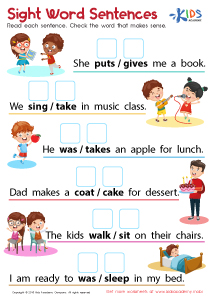Extra Challenge Reading Non-Fiction Worksheets for Ages 3-8
6 filtered results
-
From - To
Discover our Extra Challenge Reading Non-Fiction Worksheets for ages 3-8 at Kids Academy! Perfect for early readers and young explorers, these engaging worksheets are designed to improve reading comprehension, critical thinking, and analytical skills. Bursting with captivating topics and vibrant illustrations, each worksheet presents challenging yet age-appropriate content. From curious animals to fascinating science facts, your child will stay intrigued while gaining valuable knowledge. Elevate your child's reading skills and build a strong educational foundation with our collection. Make learning fun and impactful with Kids Academy’s expertly designed resources tailored for young minds!
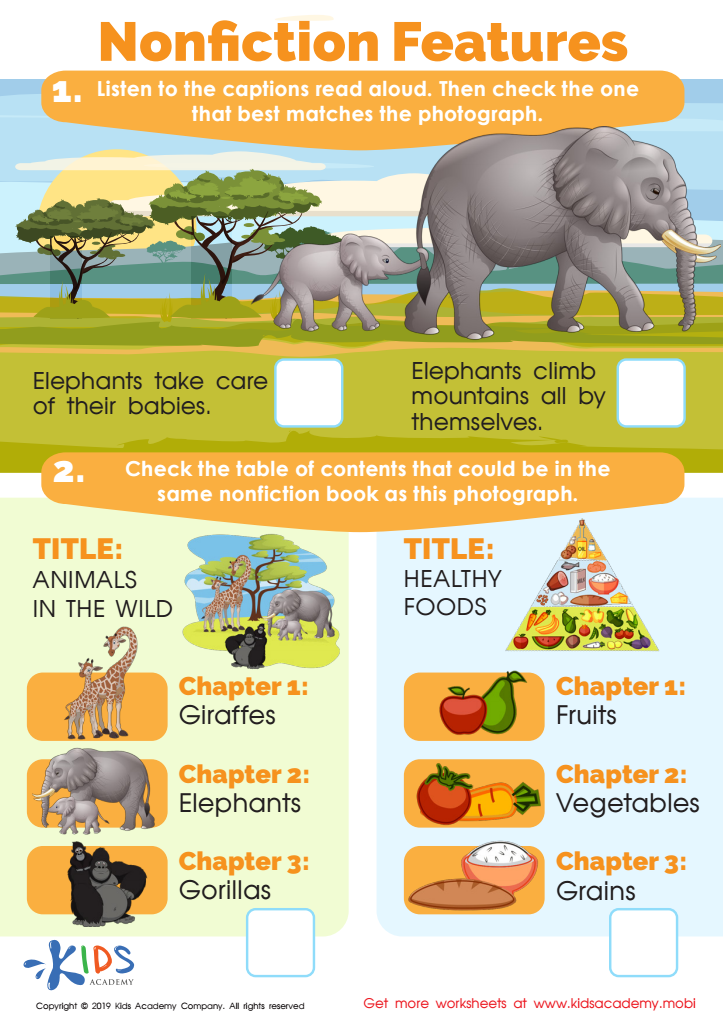

Nonfiction Features Worksheet
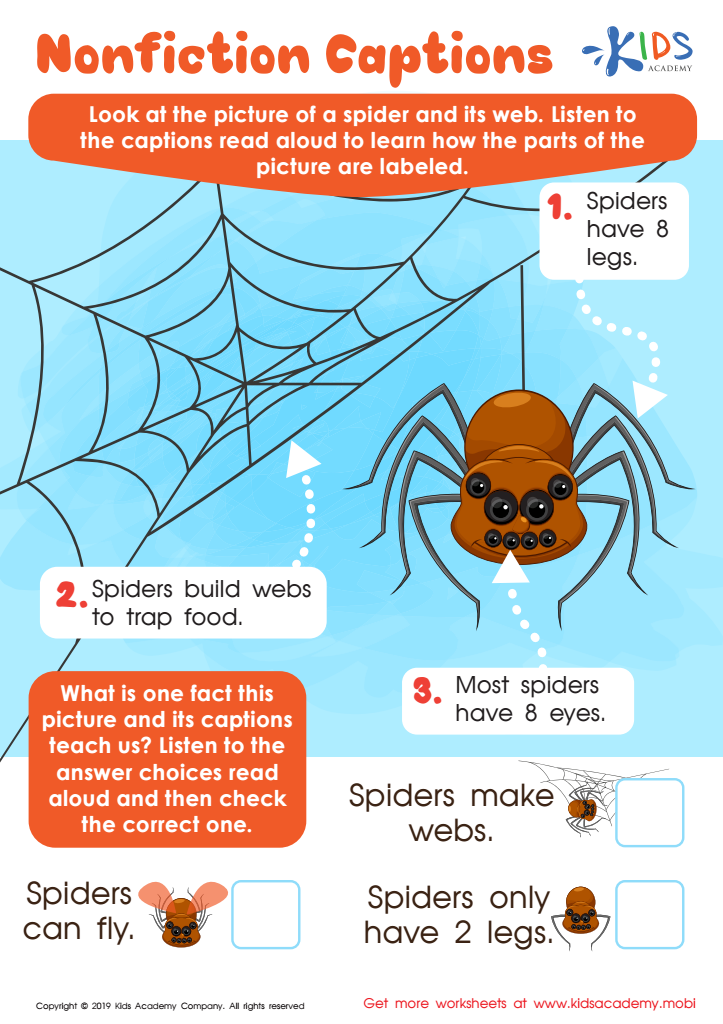

Nonfiction Captions Worksheet
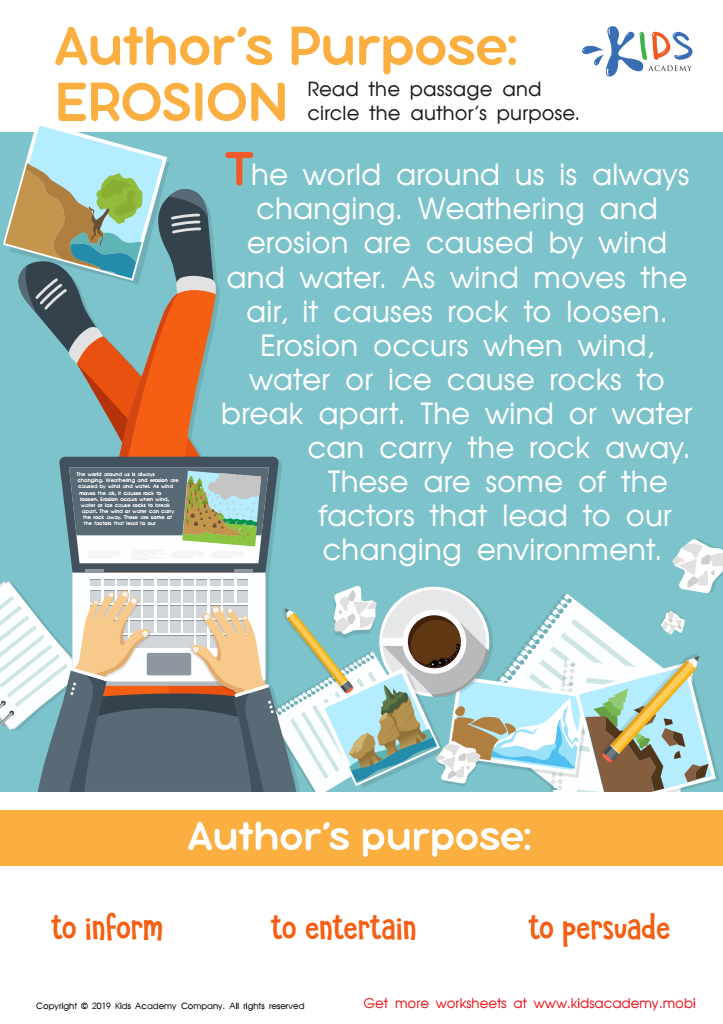

Author’s Purpose: Erosion Worksheet
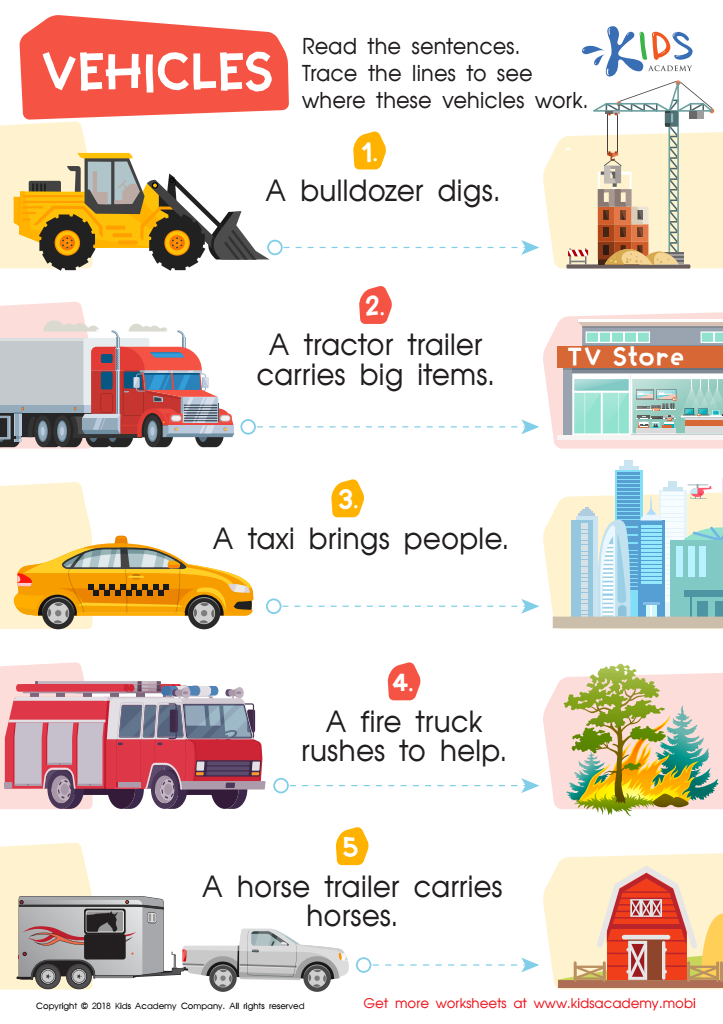

Vehicles Worksheet
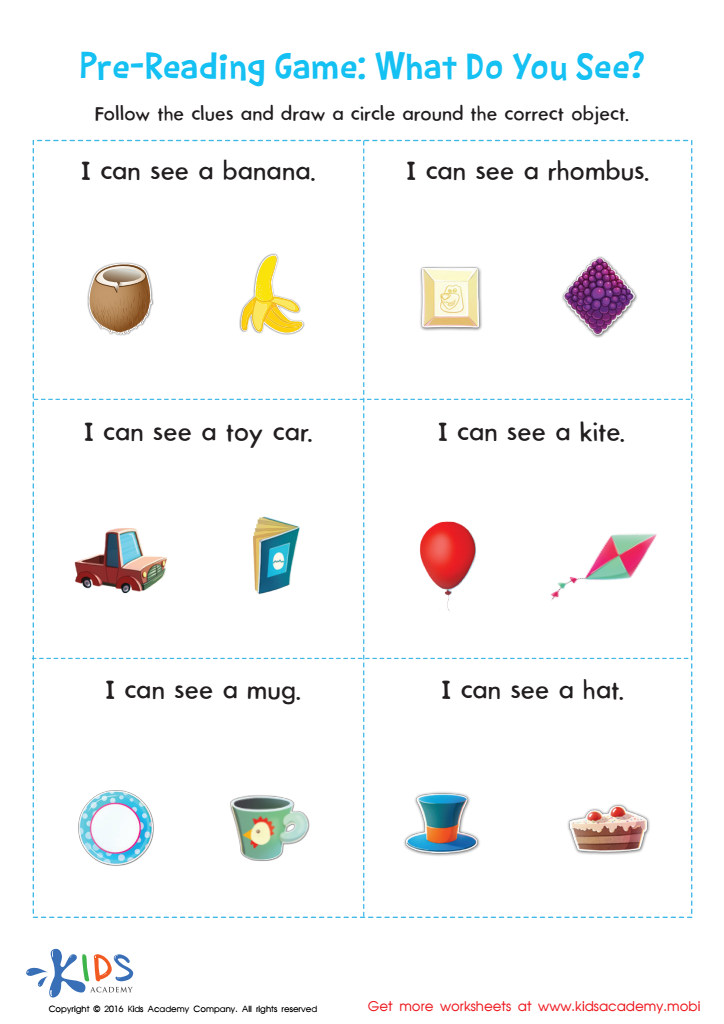

Pre–reading Worksheet: What Do You See?
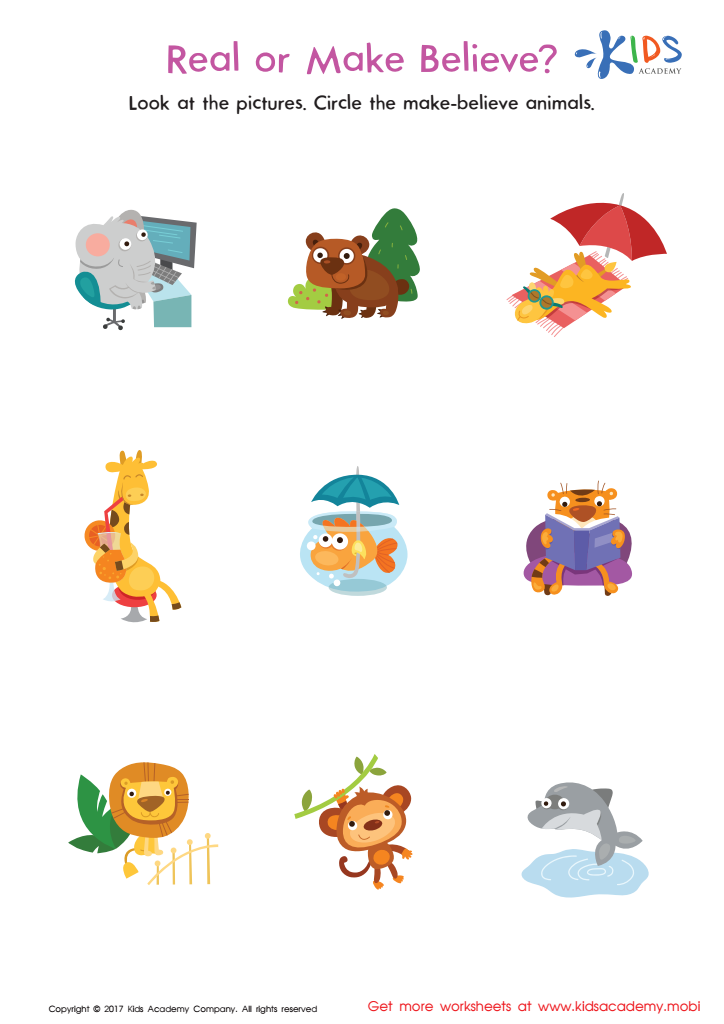

Fact or Make Believe Worksheet
Extra challenges in reading nonfiction for ages 3-8 are crucial for several reasons. Firstly, exposing children to nonfiction content at an early age significantly broadens their knowledge and understanding of the world. While fiction fuels imagination and creativity, nonfiction teaches them about real-life concepts such as animals, nature, history, and science, sparking curiosity and a thirst for knowledge.
Secondly, nonfiction reading enhances vocabulary development. Children are introduced to precise and varied terminology, which is essential for understanding complex ideas and concepts later in their educational journey. This form of reading also aids in the development of critical thinking skills. Nonfiction texts encourage young learners to question, analyze, and comprehend information, ensuring they can distinguish between fact and opinion.
Moreover, cultivating a habit of reading nonfiction primes children for future academic success. As they progress through school, they'll encounter an increasing amount of nonfiction material in subjects like science, history, and social studies. Familiarity with this genre improves their ability to grasp new concepts quickly.
Ultimately, parents and teachers should care about introducing nonfiction reading early because it develops well-rounded, informed, and capable young learners. By challenging children with age-appropriate nonfiction, we empower them with the tools and knowledge they need for lifelong learning and success.

 Assign to the classroom
Assign to the classroom






